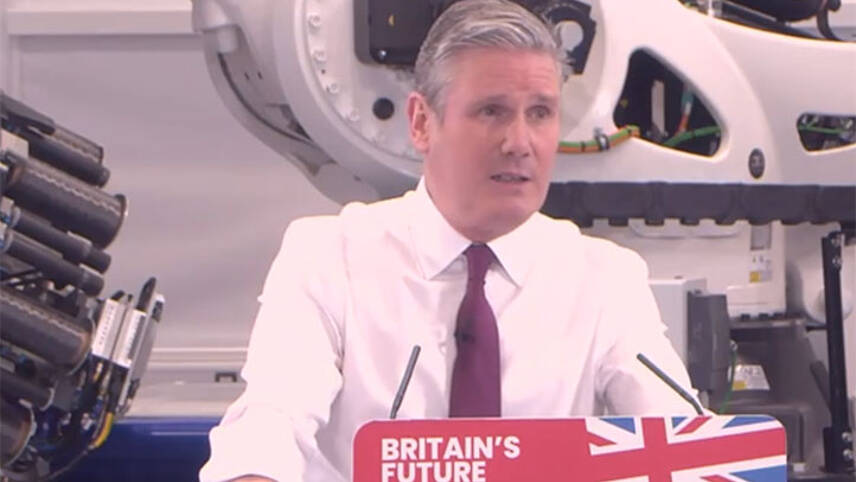Register for free and continue reading
Join our growing army of changemakers and get unlimited access to our premium content

Keir Starmer conveyed that there will be no additional investment commitments before the election.
The multibillion-pound green investment plan was first announced in 2021 by Shadow Chancellor Rachel Reeves at the Labour Party Conference. At the time, Reeves stated that Labour “would not shirk our responsibility to future generations and workers and businesses in Britain”.
However, on Thursday evening (8 February), Labour leader Keir Starmer said that because of the Conservatives’ mishandling of the economy and the Chancellor’s decision to exhaust the nation’s credit limit, it would be unfeasible to uphold Labour’s green investment pledge.
Under new proposals from the Party, spending would be cut to £15bn in total. The Guardian reports that only a third of this would be considered new money. Labour will instead set aside less than £5bn annually, as well as a £10bn of finance for green initiatives that the Government has already committed to.
As recently as Tuesday, Starmer had affirmed the Party’s dedication to the package. Speaking to Times Radio, Starmer had asserted that his stance on green policy remained steadfast, hitting back at claims that Labour would weaken its ambitious targets to spend up to £28bn annually on green markets and development.
Nevertheless, the party leader has now backtracked on one of its major commitments on the day when the global temperature exceeded the 1.5C warming threshold for an entire year for the first time.
Starmer said: “Everywhere in the real world people have to adjust their decision when the circumstances change.
“What would be really irresponsible is to know the damage done to the economy by the failed Government and ignore that and pretend it didn’t happen.”
Moreover, in a conversation with the BBC, Starmer conveyed that there will be no additional investment commitments before the election.
The Party’s Warm Homes Plan, aiming to enhance home insulation in the UK, will also be reduced from its initial goal of upgrading 19 million homes over a decade to five million homes within five years.
Amid climate action becoming entangled in a culture war and the Conservative party rolling back on the UK’s key net-zero commitments last year, Labour’s financial pledge towards climate action was perceived as critical for UK’s net-zero targets by the green economy.
This retraction of Labour’s financial commitment has drawn significant criticism from the green economy sector. Here, edie rounds up the key reactions.
Champa Patel, executive director of governments and policy, The Climate Group said: “Backtracking on climate is the last thing we need at a time when climate impacts are intensifying, the UK’s biodiversity is in freefall and the current government is consistently failing to meet even the most basic of targets.
“Constant political point-scoring is setting us back when research consistently shows people want a greener, energy-secure future for them and their children. Labour needs to listen and deliver an alternative strong, climate-focused strategy.”
Jess Ralston, analyst, Energy and Climate Intelligence Unit (ECIU) added: “There is a global economic race to build clean industries and Britain has to compete for green investment. Investors are looking for policy certainty and a clear plan from policymakers.
“Moreover, a lack of investment in insulating homes and building more British renewables over the past decade left UK households on the hook for high gas prices, which cost bill payers and taxpayers in the region of £50-60bn in one year alone.
“Each home could have saved up to around £2,000 last year had we made those investments.”


Please login or Register to leave a comment.